TABLE OF CONTENTS
You may have found yourself in the situation of having to purchase a knife. And you may have thought: "how hard could that be"? After all, knives only serve one purpose, right? Well, sort of. In reality, each kitchen knife has a different purpose. For instance, steak and bread knives have different shapes and achieve different ends.
With kitchen blogs and gurus being so popular nowadays, you might have heard something about the debate "German vs. Japanese knives," which are without a doubt among the most popular choices for many consumers. Do you wonder why? Keep reading to find out.
Germany and Japan have been making knives for centuries and are homes of some of the most popular brands in the world. To make a confident decision about which kind of knife would be best for your kitchen, you need to understand what sets these types of cutlery apart.
Indeed, despite sounding silly, when it comes down to choosing a knife to purchase, you might be overwhelmed by the incredible amount of options.
If you are curious to learn which type would win in the German vs. Japanese knives battle, you've landed in the right place. In this concise but complete guide, you'll get to know everything you should know about the differences between these types of cutlery.
Of course, when purchasing your equipment from a suitable manufacturer, you'll have little to worry about quality and performance. Instead, you'll want to ensure the knife you choose suits your kitchen's needs. And what best way to do so than learn about the similarities and differences of the most popular knife styles?

What Are Japanese Knives?
Japanese knives differ from German ones in hardness, edge angle, construction, and function. The Japanese knives we know take inspiration from samurai swords. They are thin and perfectly suitable for fine, precise, and delicate slicing.
These blades are made of hard steel, sharper but more brittle than the softer version. Unfortunately, this also makes Japanese blades more likely to chip: you'll have to use them a bit more carefully than the tougher German knives.
Additionally, traditional Japanese knives' edges are not symmetrical: left-handed consumers might have difficulty using this type of equipment in the kitchen. Luckily, brands adapted to the Western market now offer symmetric blades.
What might influence your choice is that these knives are best for the precise slicing of vegetables and fish. If you are a passionate meat-eater, you might want to reconsider your choice.
Most Japanese knives are easy to control because of their lightweight handle. This further increases precision. However, the higher carbon content of Japanese knives makes them more prone to corrosion and rust. One tip you'll have to keep in mind is to immediately clean and dry your Japanese cutlery after having sliced acid food such as tomatoes. Doing so will considerably increase the durability of your blade.

What Are German Knives?
German knives are the kitchen workhorse of the situation. They are thick and heavy, and their rounded belly makes them suitable for different purposes. Still, these knives are the best choice for chopping bones or cutting joints. However, one of the best things about German blades is that they suit various purposes with no problems.
Their blade angle is wide but also less sharp than Japanese knives. Thus, you'll have a hard time achieving high-level precision cuts. On the bright side, German blades are more durable than Japanese ones. It might be worth mentioning that they tend to lose their edge earlier than harder knives.
Both German and Japanese knives consist of steel blades. Despite what you may think, not all steel is the same. Steel is an alloy, which means it is a mixture of different metals: iron and carbon. The higher the amount of carbon present in the steel, the harder and less durable the blade will become. As you may guess, German blades have less carbon than Japanese ones, making them softer but more durable.
In terms of design, they consist of a single piece of steel running from blade to butt, making it easier to cut through the hardest materials.

German vs Japanese Knives: How To Decide
As you might guess, the final decision comes down to the purpose you are planning to give to your knife. If your cooking involves lots of slicing and your diet is rich in fish, you'll have a fun time with a Japanese knife. However, for cutting through thicker vegetables or foods such as pumpkins, watermelons, and meat, an all-purpose German knife will do for you.
Most modern knives makers try to mix the best of both worlds and create blades as hard as Japanese ones and as sturdy as German ones. However, now that you know about the differences between these knives, you have all the information to choose one over the other confidently.
When it comes to knives, less is more. You might have noticed that out of an entire knife set, you tend to use the same three over and over and ignore the rest. So, instead of buying a wide variety of different knives shapes, it might be more worth it to spend a bit more on a single, high-quality knife that you'll use.
After all, the amount of money you'll pay for a knife set of 12 to 18 pieces will cover the investment you'll make in a quality chef knife. But how to choose the right one for you? Besides using the information in this guide, you'll also have to conduct your research.
One of the most important considerations for your purchase will involve your cutting style. If you do not use chopping as much as slicing, there is no point in purchasing a German knife.
The same applies otherwise. If you are not 100% sure of what to buy, you might want to consider getting a German knife and a santoku. The latter is a hybrid between both types of blades. Its rounded belly is adapted for chopping, while the edge is as hard and precise as most Japanese knives.
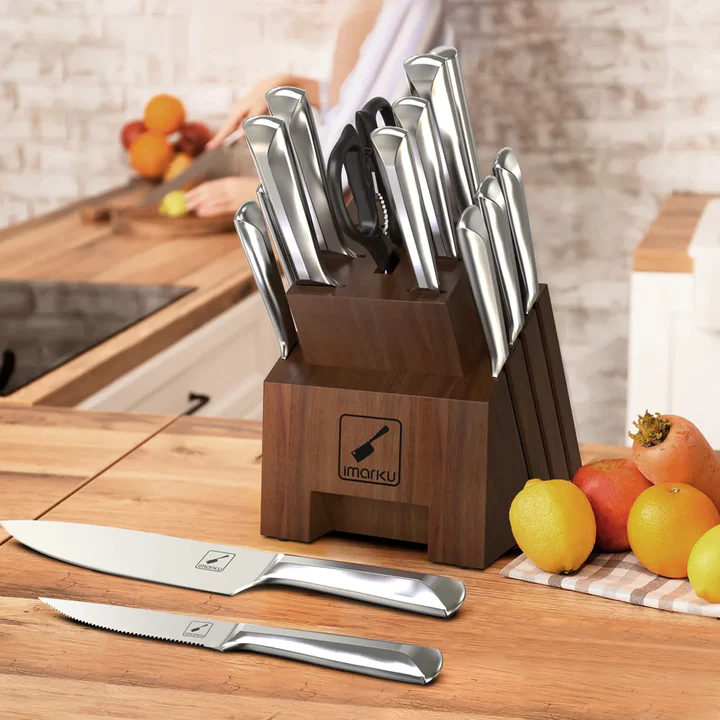
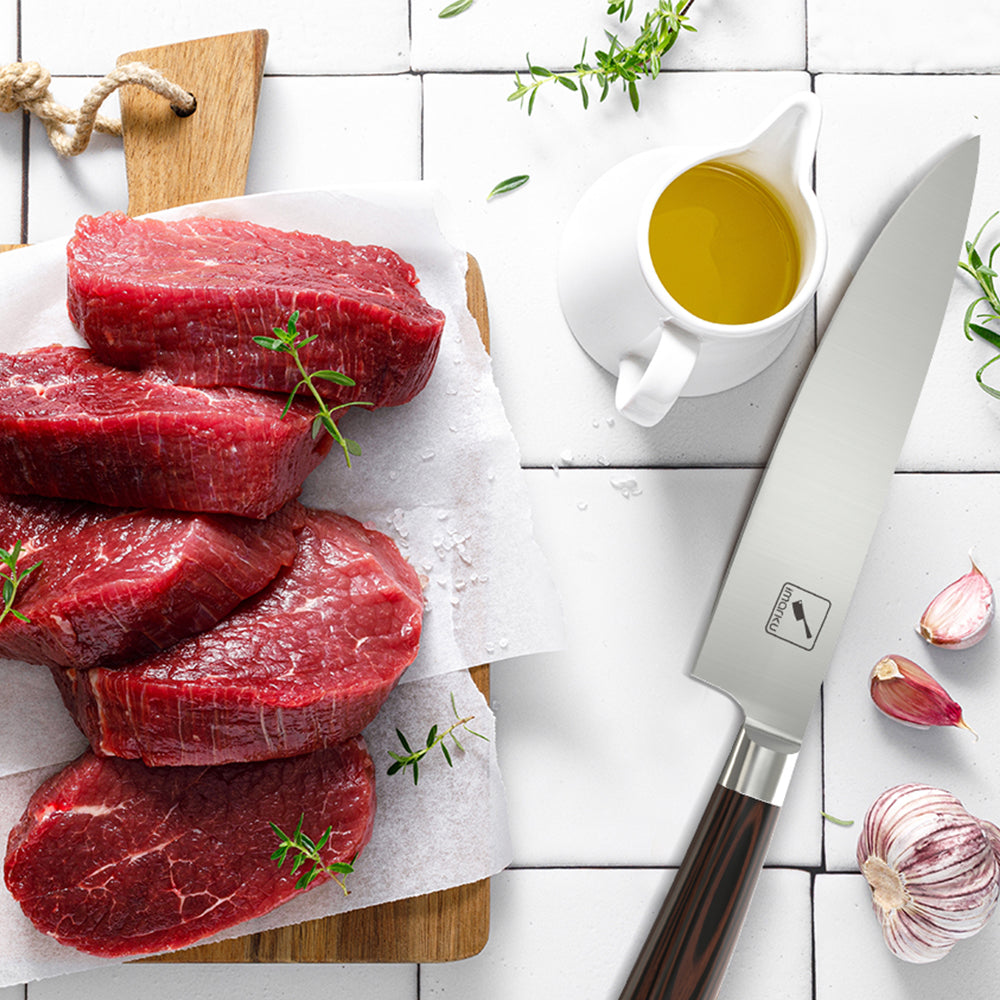


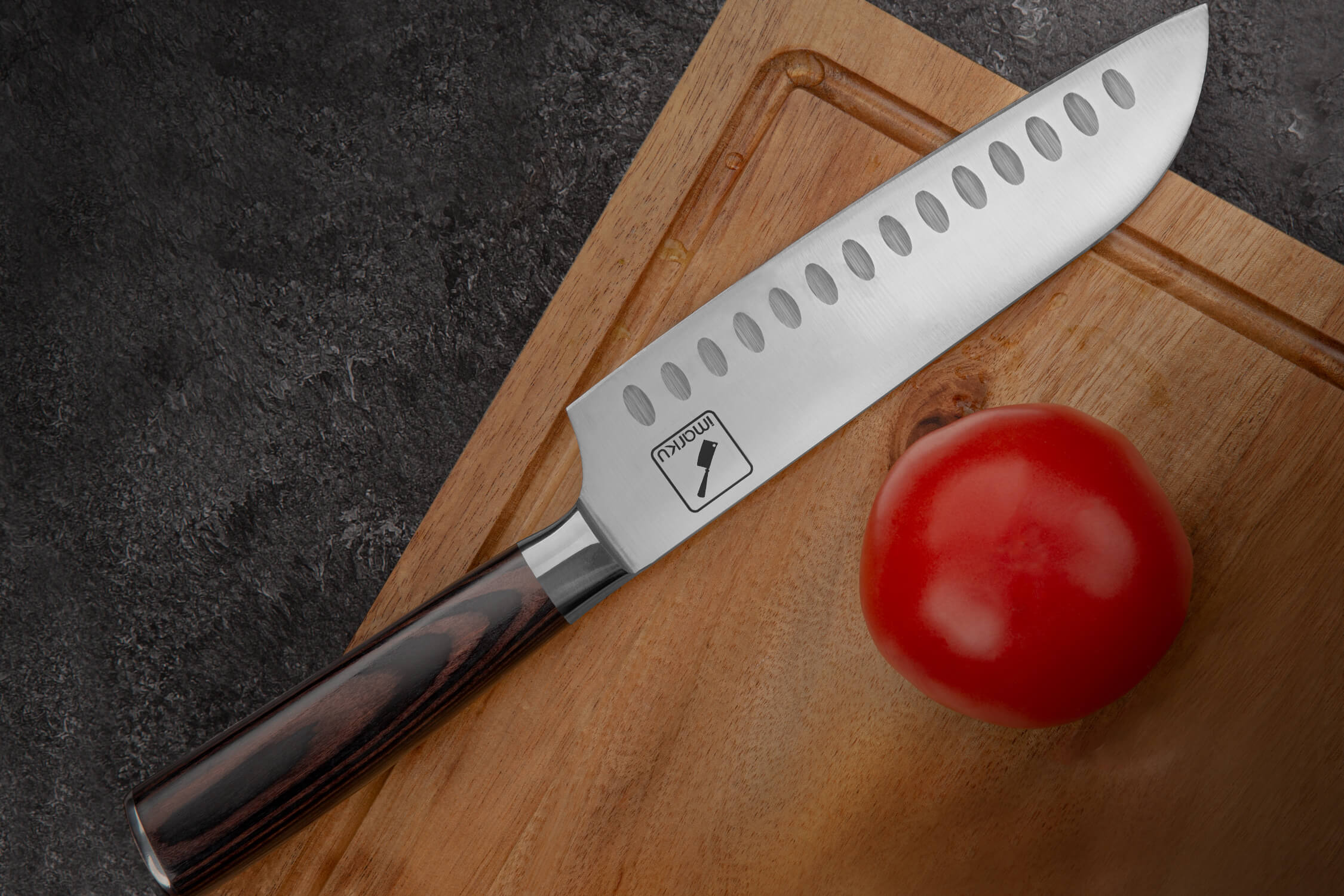

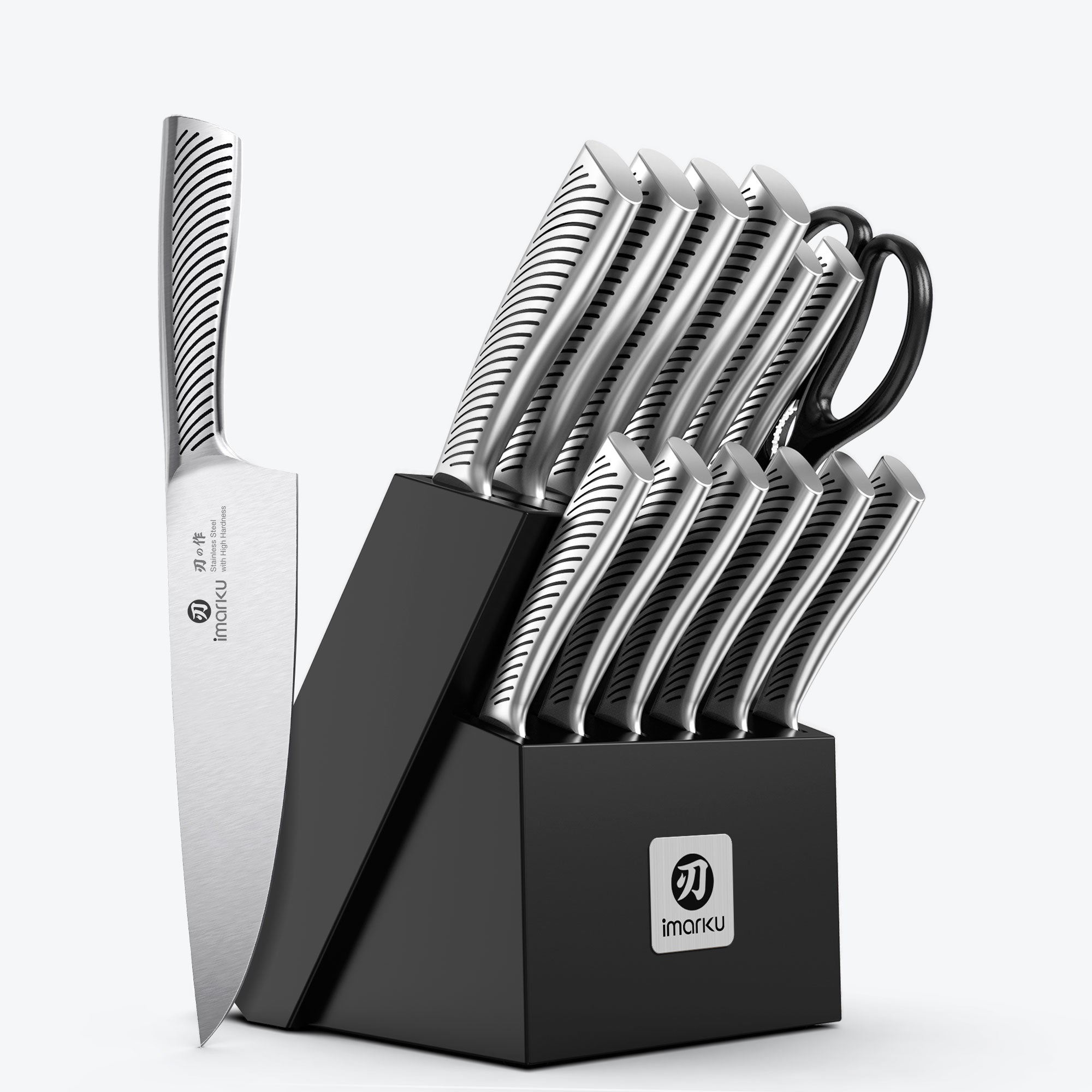

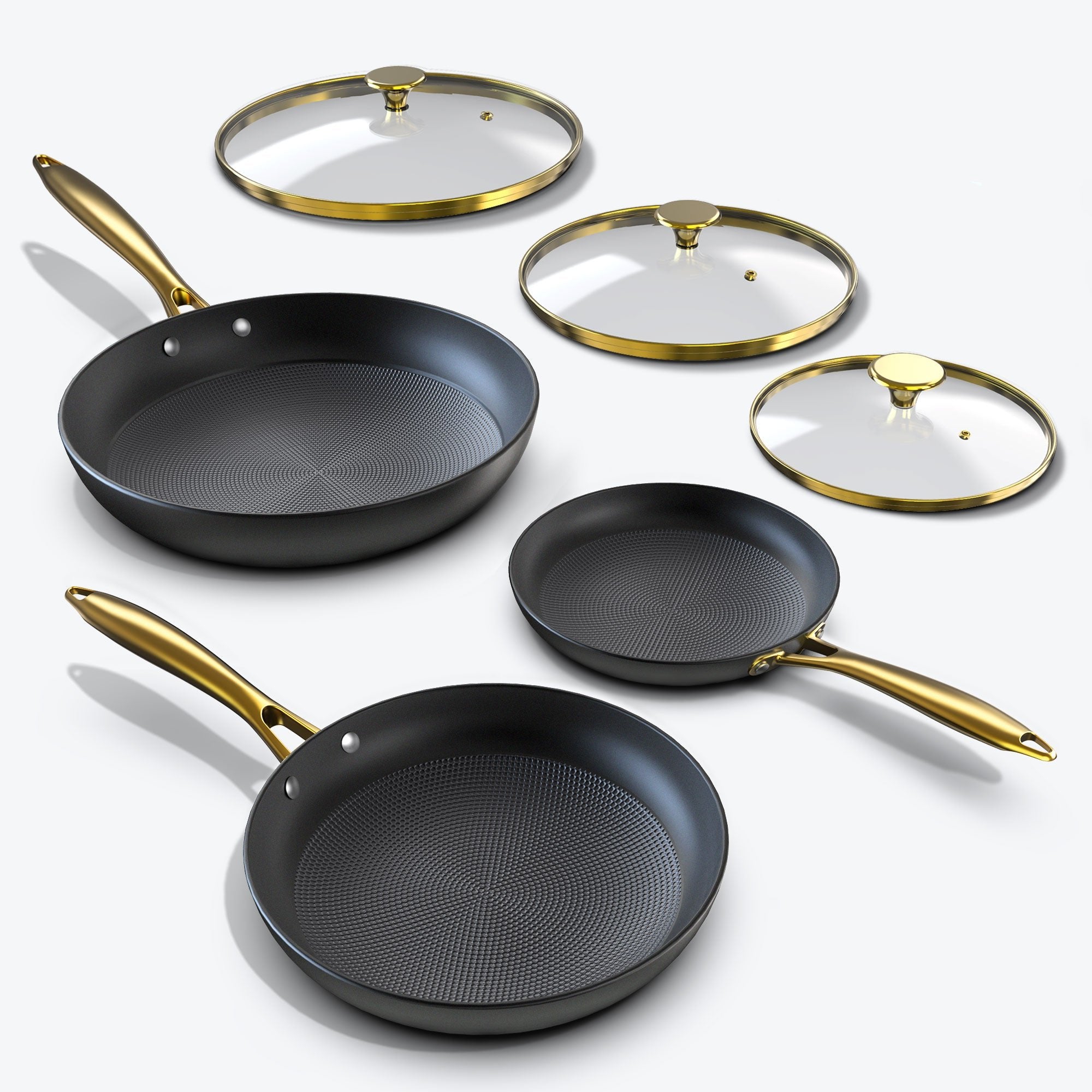
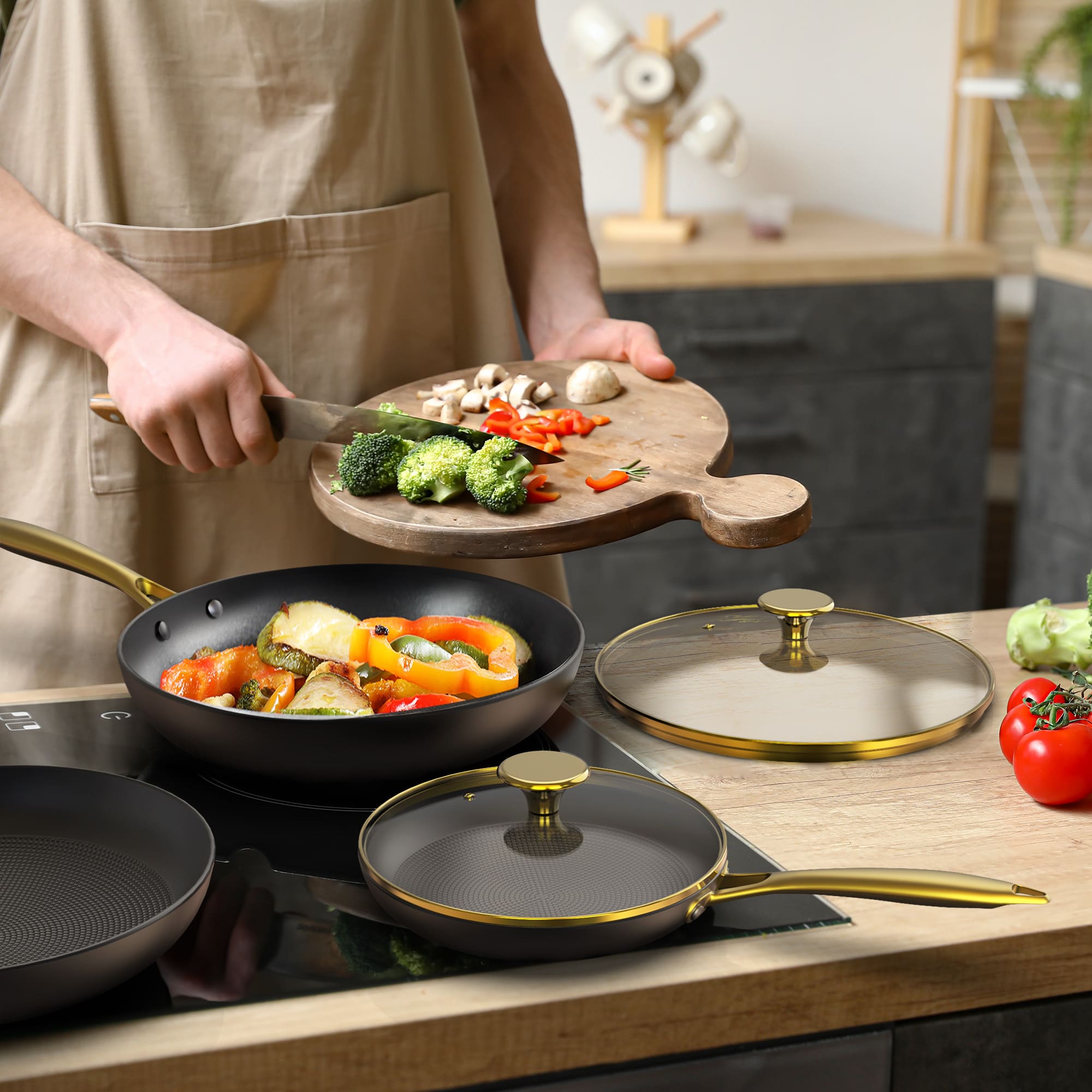


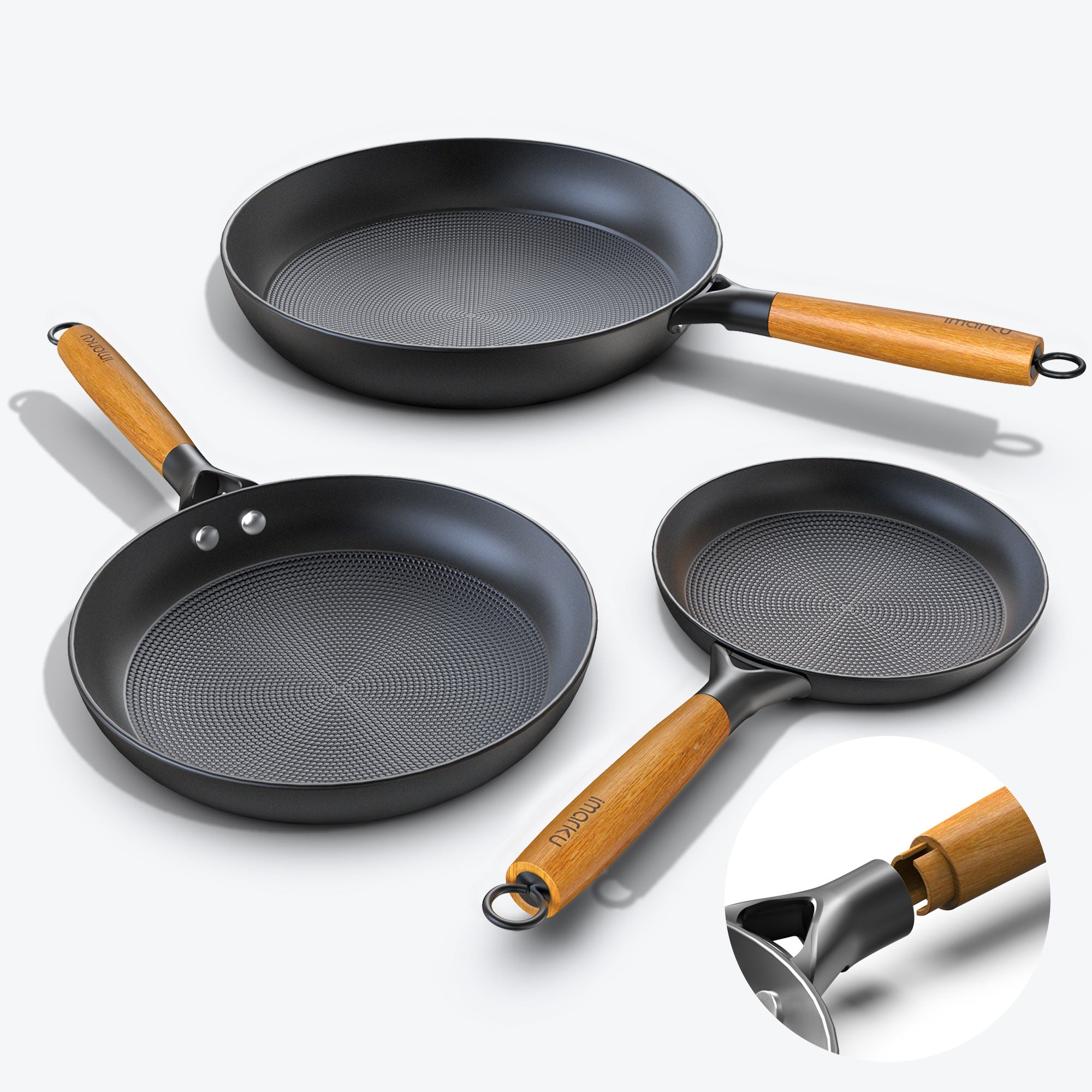
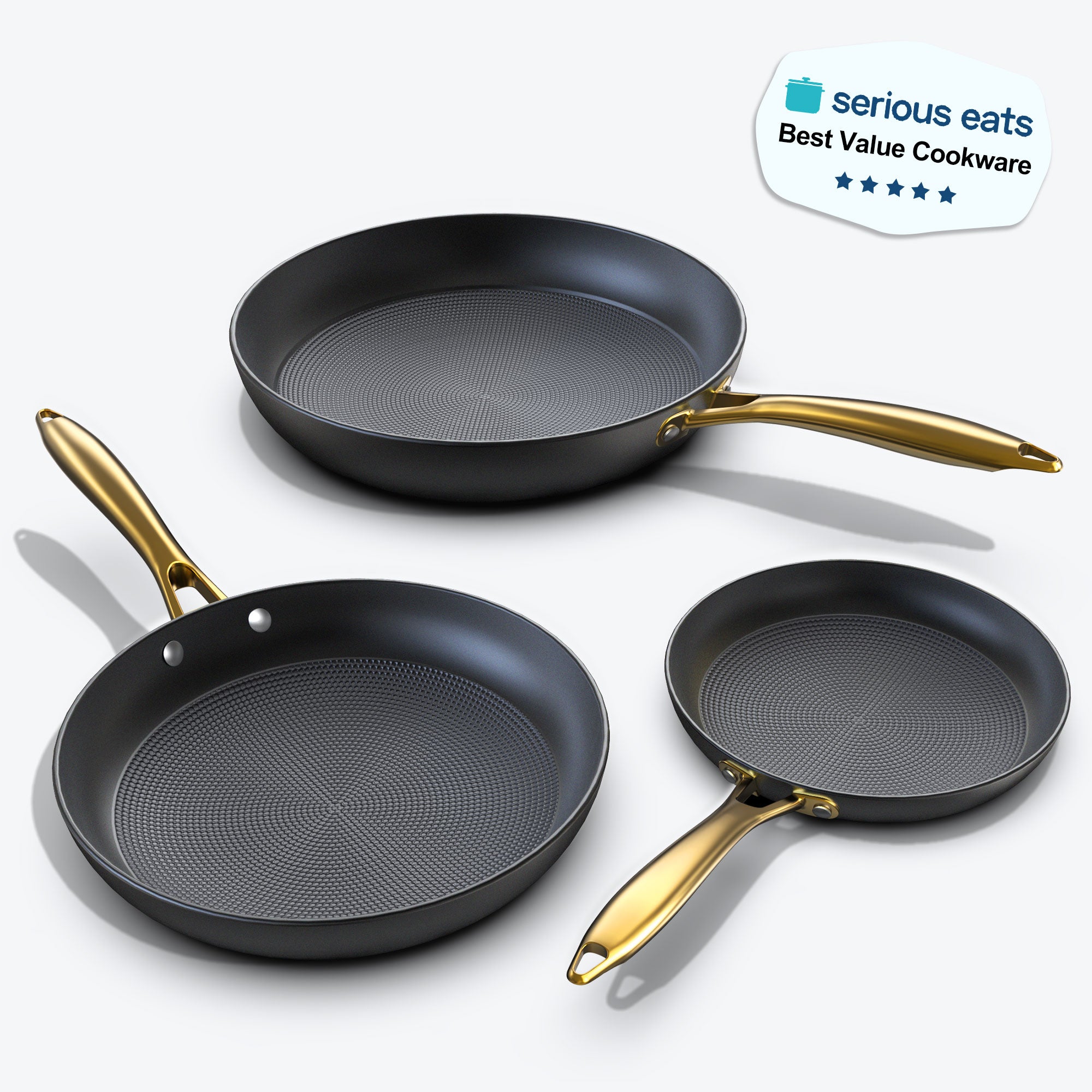
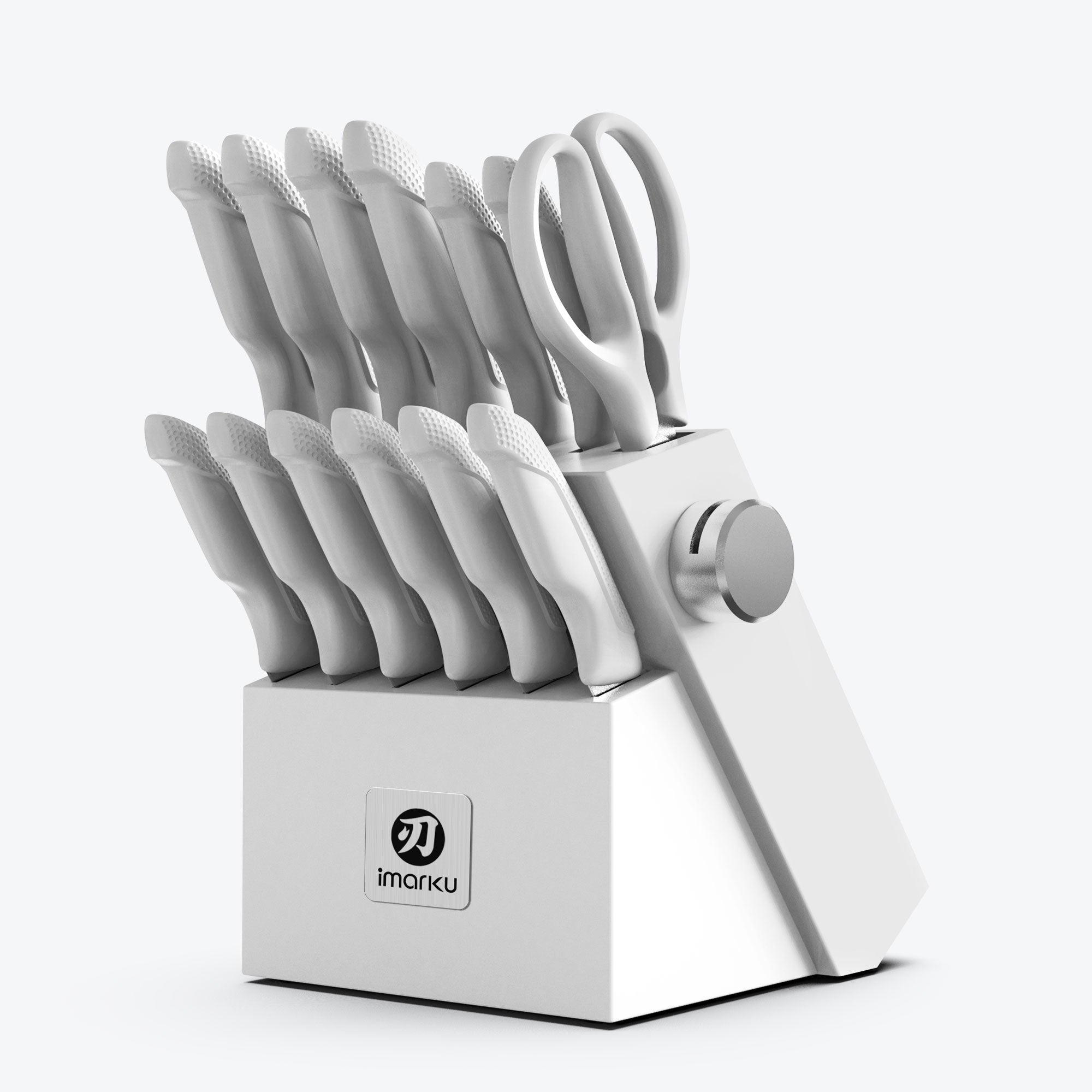

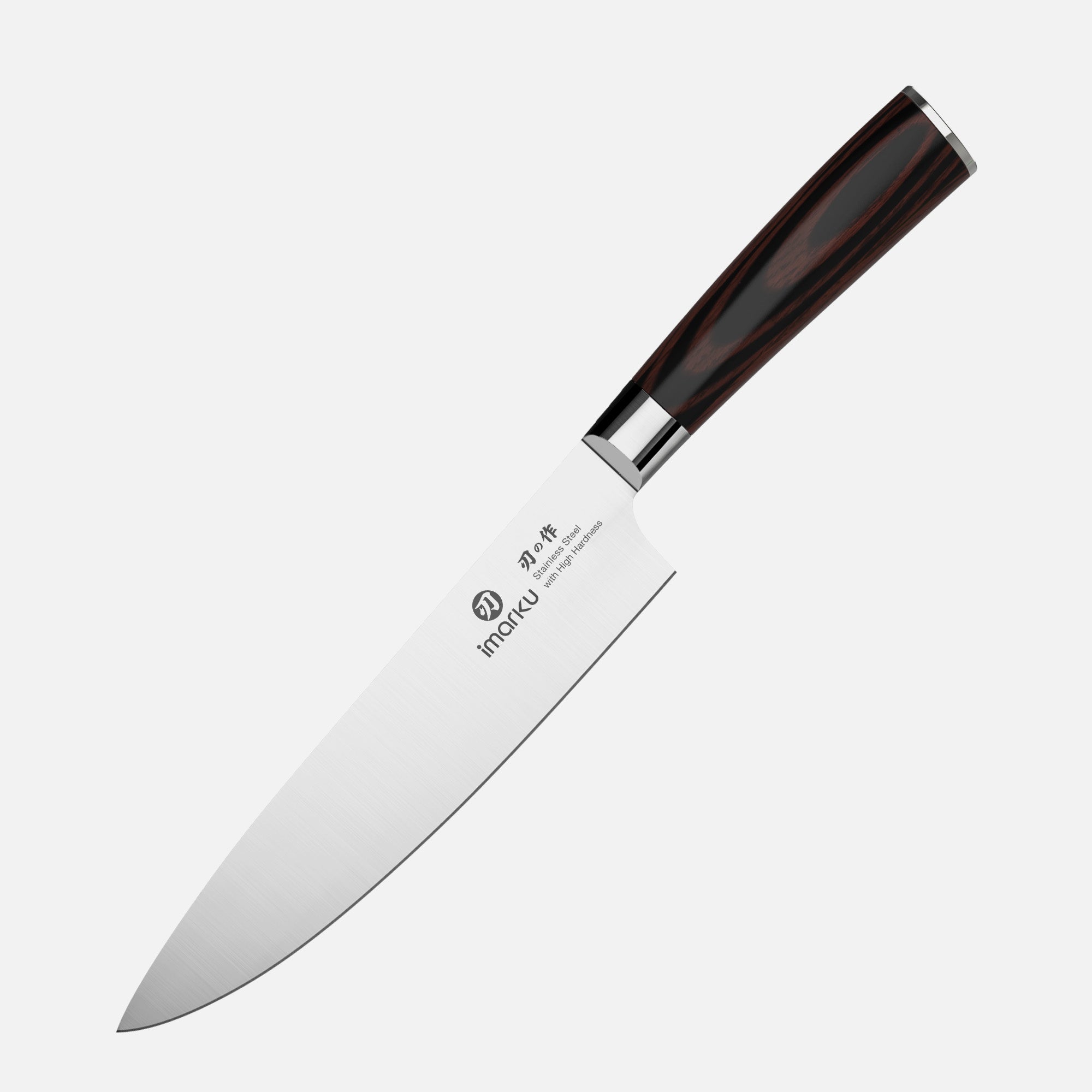

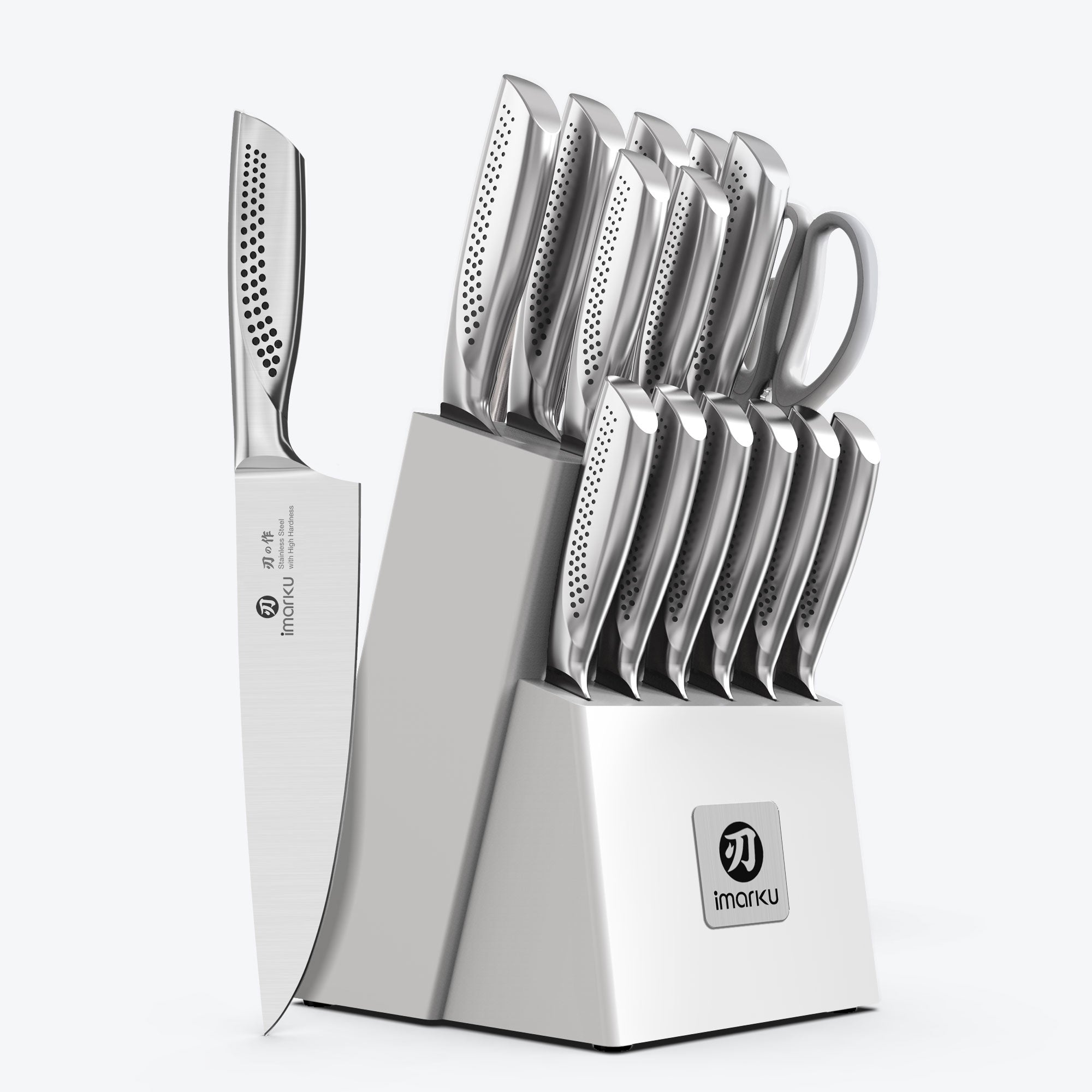

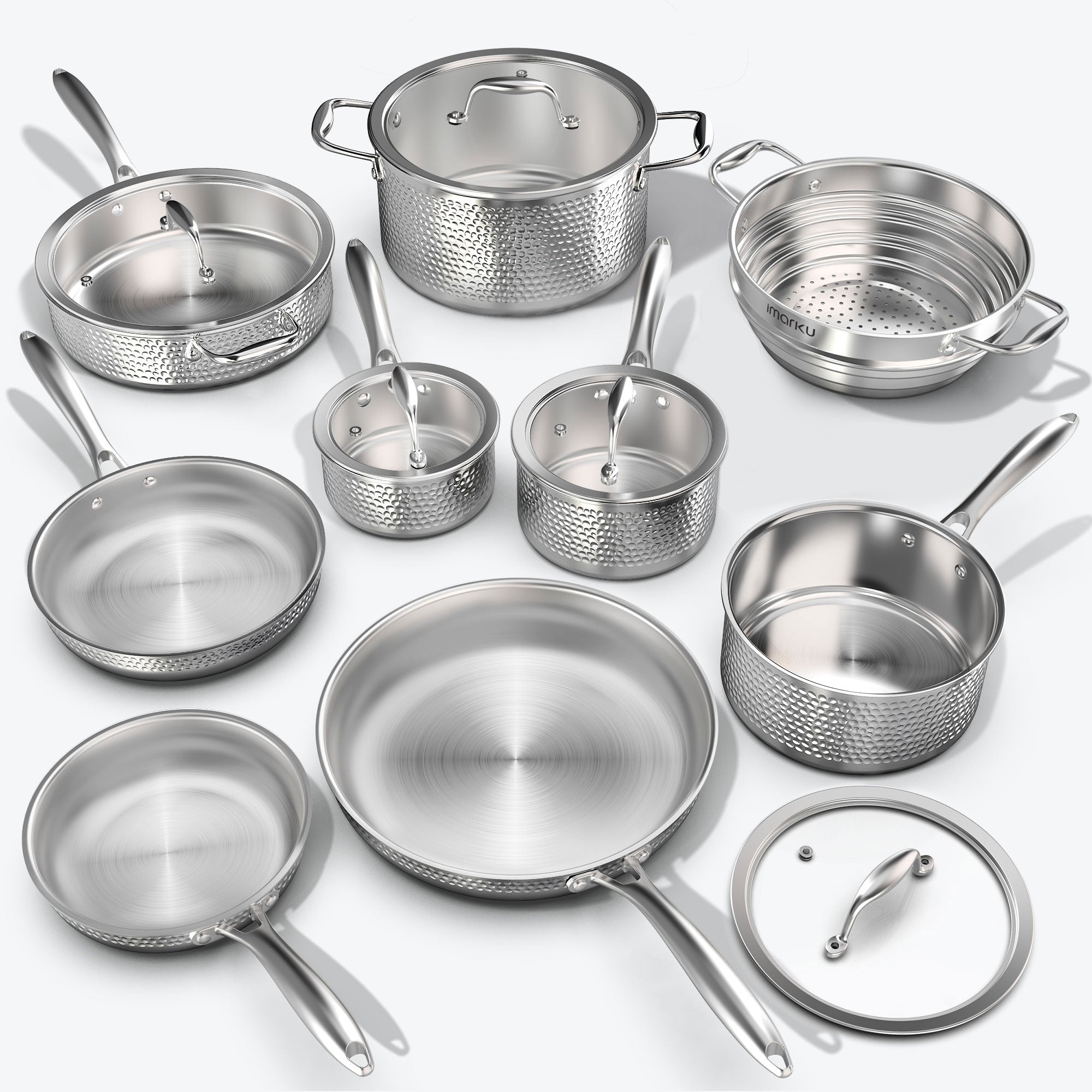
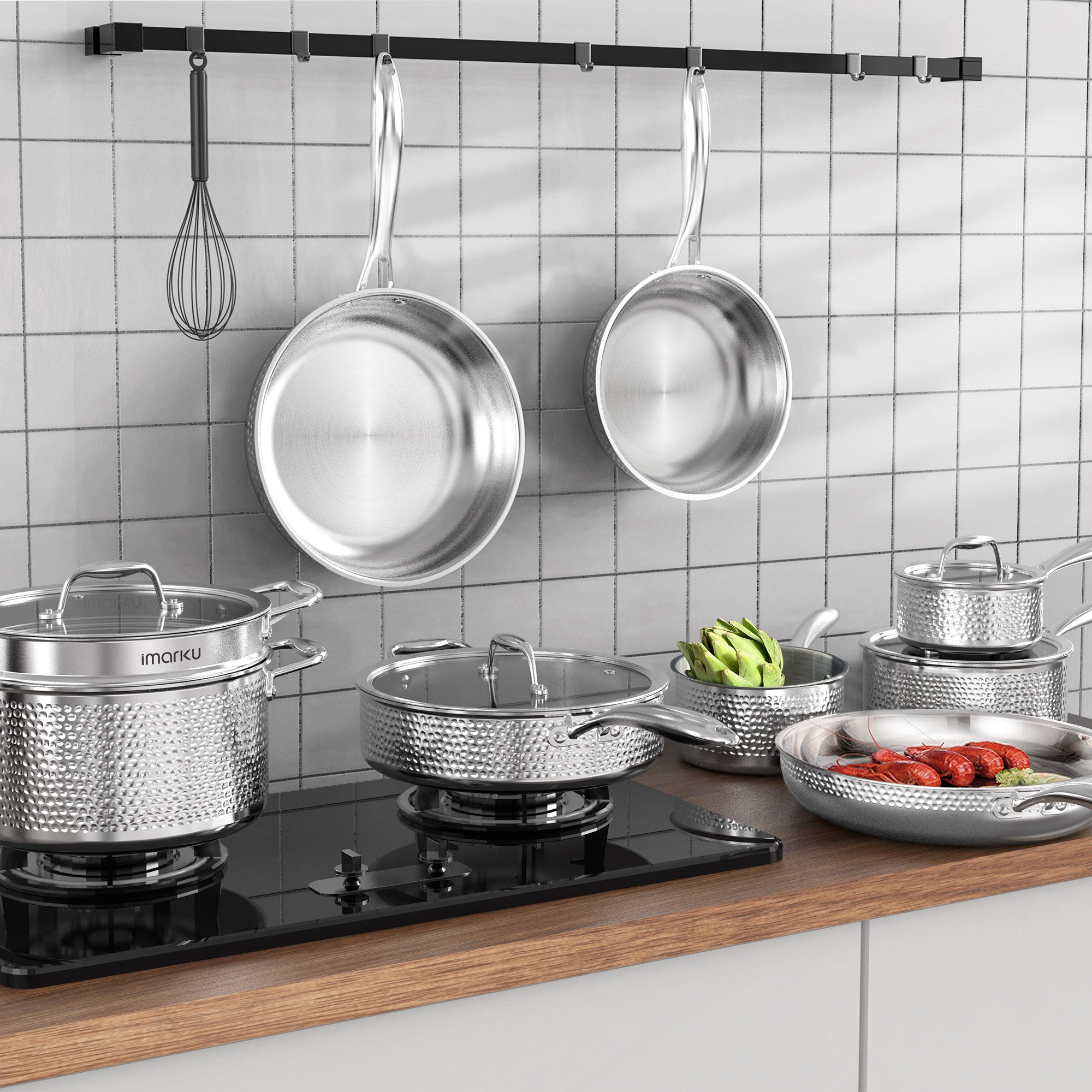
Leave a comment
All comments are moderated before being published.
This site is protected by hCaptcha and the hCaptcha Privacy Policy and Terms of Service apply.